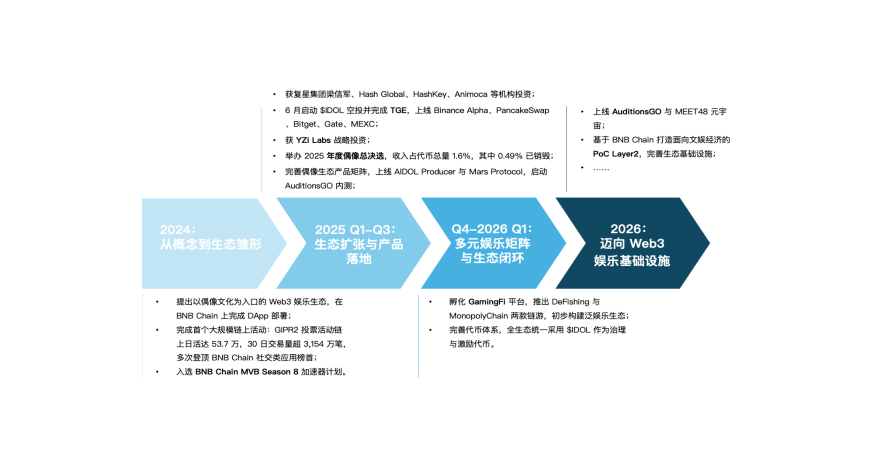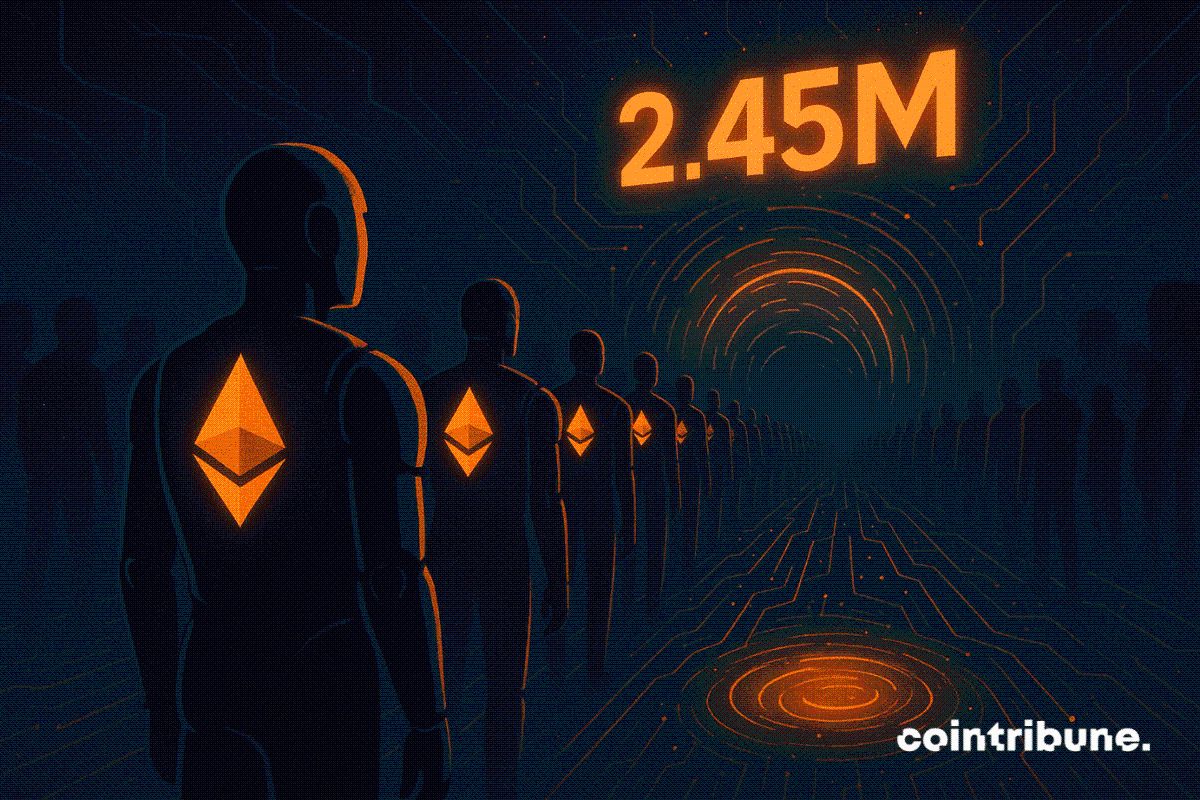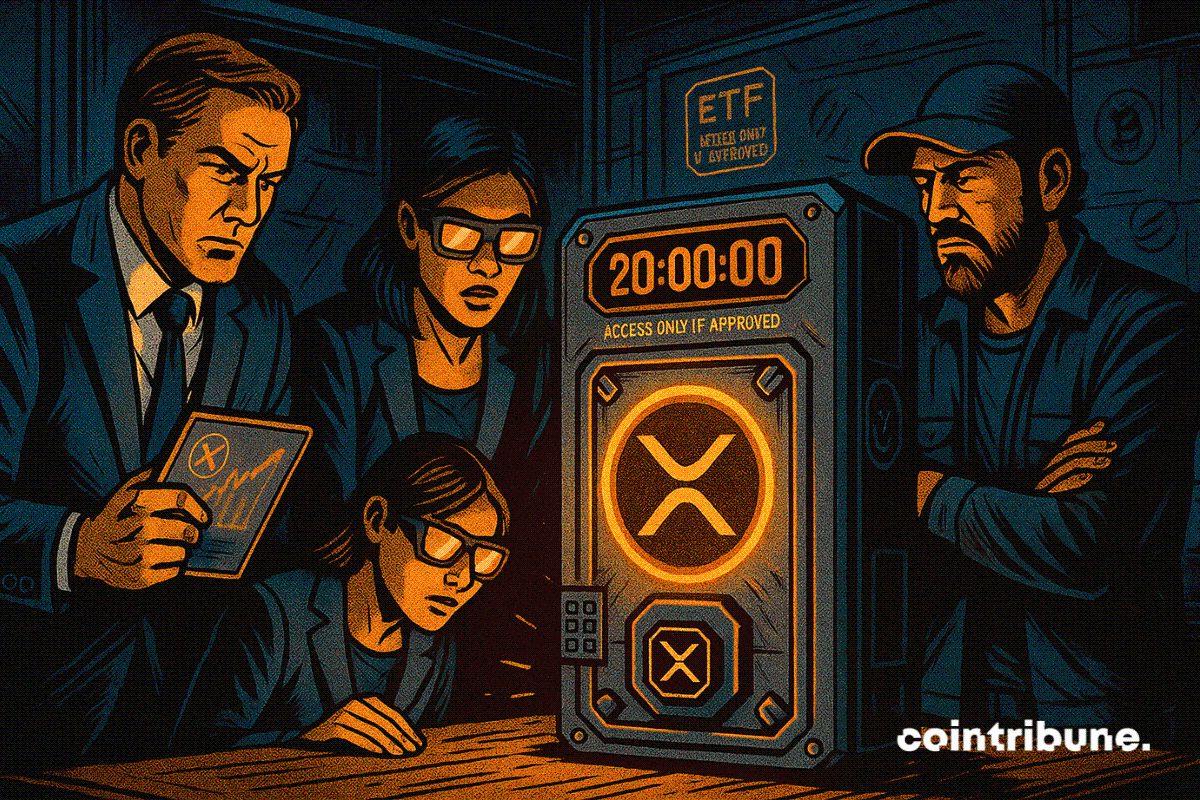Digital Euro: Italy Advocates for a Gradual Implementation
Italy supports the European Central Bank (ECB)’s digital euro project but sets its conditions. Transalpine banks, while welcoming this digital sovereignty initiative, demand a financial effort spread over time. Facing heavy investments, the Italian banking sector wishes to avoid a budget shock. Will this position find resonance among other European countries?

En bref
Italy Between Enthusiasm and Financial Pragmatism
The Italian Banking Association (ABI) expressed its support on Friday for the digital euro project during a press seminar in Florence. Marco Elio Rottigni, its general manager, praised this initiative which he considers a “concept of digital sovereignty.” However, behind this enthusiasm lies a major concern: the financial weight of the project.
“ The project costs are however very high compared to the investment expenses that banks have to bear“, declared Rottigni. Italian institutions therefore demand that these costs be spread over time.
This request comes as the European banking sector faces multiple technological and regulatory challenges. Banks already have to invest massively in cybersecurity, regulatory compliance, and modernization of their infrastructures.
The Italian stance contrasts with that of some French and German banks. The latter show more frank resistance, fearing that a digital wallet supported by the ECB might drain deposits from commercial institutions. This concern is not trivial: a massive transfer of deposits to the digital euro could undermine the traditional economic model of banks.
Rottigni proposes a pragmatic solution: adopting a “dual approach.” This strategy would combine the ECB’s digital euro with digital currencies issued by commercial banks.
“What Europe must above all not do is fall behind“, he insisted. This statement resonates with European ambitions in the face of international competition, particularly Chinese and American, in the field of digital currencies.
An Ambitious Schedule Despite Obstacles
The ECB Governing Council approved at the end of October moving to the next phase of the project after two years of preparation.
A pilot phase is set to begin in 2027, with a full deployment provisionally planned for 2029. However, this schedule remains conditioned on the adoption of European legislation in 2026, a process that promises to be complex and politically sensitive.
The ECB has already taken concrete steps. Last month, it finalized framework agreements with seven technology providers, including fraud detection specialist Feedzai and security company Giesecke+Devrient.
These partnerships aim to develop innovative features such as “alias search.” This function will allow users to make payments without knowing the recipient’s technical details or offline payment capabilities.
European MP Fernando Navarrete, who leads the parliamentary review, recently presented a draft report advocating a simplified version of the digital euro. The goal: to protect private payment systems such as Wero, launched by fourteen European banks. This approach reflects a desire to find a balance between public innovation and the preservation of the private ecosystem.
Beyond Europe, 137 countries and monetary unions representing 98% of global GDP are currently studying the creation of a central bank digital currency. This global race illustrates the strategic stakes of CBDCs.
Christine Lagarde , ECB president, continues to defend the project as a “symbol of trust” and a tool of European financial sovereignty despite criticisms about surveillance and centralization risks.
The digital euro is at a strategic crossroads . While Italy shows the way for conditional support, the project still faces major financial, political, and societal resistance. The ECB will need to convince not only commercial banks but also European citizens.
Disclaimer: The content of this article solely reflects the author's opinion and does not represent the platform in any capacity. This article is not intended to serve as a reference for making investment decisions.
You may also like
Mars Morning News | Michael Saylor calls: Buy Bitcoin now
Trump Media & Technology Group’s Q3 losses widened to $54.8 million, and it holds substantial amounts of bitcoin and CRO tokens; US consumer confidence has fallen to a historic low; a whale bought the dip in ZEC and made a profit; a bitcoin whale transferred assets; Michael Saylor called for buying bitcoin; the Federal Reserve may initiate bond purchases. Summary generated by Mars AI. The accuracy and completeness of this content is still being iteratively updated by the Mars AI model.

MEET48: From Star-Making Factory to On-Chain Netflix — How AIUGC and Web3 Are Reshaping the Entertainment Economy
Web3 entertainment is moving from the retreat of the bubble to a moment of restart. Projects represented by MEET48 are reshaping content production and value distribution paradigms through the integration of AI, Web3, and UGC technologies. They are building sustainable token economies, evolving from applications to infrastructure, aiming to become the "Netflix on-chain" and driving large-scale adoption of Web3 entertainment.

Ethereum Validator Queues Surge as 2.45M ETH Sits in Exit Line

21Shares And Canary Ignite XRP ETF Approval Process

